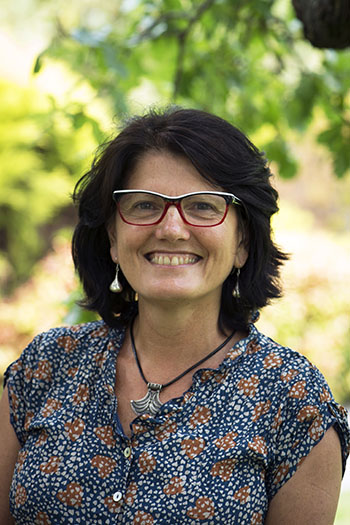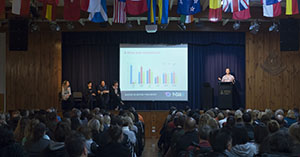
Debbie Ollis
What Does Consent Mean?
Consent means a free agreement, and it’s important that young people understand that. So if someone has been drinking they can’t give consent to sex. If someone is asleep they can’t give free agreement. If someone is underage they can’t give consent to sex either.
Talking about sex with our kids isn’t easy but it is necessary. Research tells us that young people trust the information they get from their parents, particularly their mothers.
As parents, we need to talk to our teenagers about the importance of asking a partner ‘is this what you would like to do?’. They can’t assume consent because they think they understand the body language of their partner – they have to ask.
And clearly explain to your teenagers that people can withdraw their consent at any time, too. They may start to be intimate with someone and then that person doesn’t want to go any further – and that is OK.
If you have a son, you need to talk about that classic sexual fallacy that once young men get started sexually they can’t stop, and dismiss the myth that ‘no’ means ‘yes’.
Start talking about consent using a story in the media that touches on the issue and emphasise that for there to be a consensual relationship, people have to say what they want to do. We need to remind our teenagers that there is nothing wrong with having sex and with participating in sexual activity – but they should only engage in behaviours that they want to do, when they want to do it and with whom they want to do it.
And talk about that age-old barrier based on the expectations around gender. Unfortunately, the age-old double standard is alive and well. Young women who may enjoy sex or want to have sex are ‘sluts’, and young men must go out and look for sex, and if they don’t want sex then they must be gay. These are also issues that are good to talk about with your kids because they are issues that research shows young people want to discuss.
How Consent is Portrayed:
And then there’s pornography – the elephant in the room that needs to be discussed in terms of its unrealistic nature, how it presents bodies and violence against women. The way pornography portrays consent is that you just take it and that women are ready for sex all the time with anyone, and the rougher the sex the better. If we don’t want young people to get their information about sex from porn, we need to talk to them about love, intimacy, respect and consent.
But for there to be a consensual relationship people have to talk about what they want to do in the context of a respectful and equal relationship. Parents play a huge role in helping young people to feel good about who they are from a young age and are crucial in helping young people build a positive sense of self.
Helping our Kids Be Respectful:
Part of this means talking about issues around sex as if they are just another part of our health and well-being. We talk to our children about staying fit and we need to talk to them about staying sexually healthy, too. These conversations need to be a normal part of life without any shame or negativity and discussed in a matter-of-fact way so our children feel safe and happy to talk.
Teach kids to communicate effectively and respectfully by listening, asking questions and making sure their partner is happy with what they are doing. Teach them not to put pressure on their partners. Remind them not to ask a partner to send nude photos over the internet because we know revenge porn is out there.
Give your sons and daughters an ethical framework so when they are in situations related to sex and sexuality they can rely on that framework that is based on respect, communication and thinking about the other person.
And if they see something disrespectful happening in a relationship, give them the confidence to speak up and say ‘that’s not a nice way to treat your girlfriend’. Because their voice can make a difference.
Dr Debbie Ollis is a senior lecturer in education at Deakin University whose research interests include gender, health, sexuality education and student well-being.
For more on respect and consent see our new publication Respect 101.




